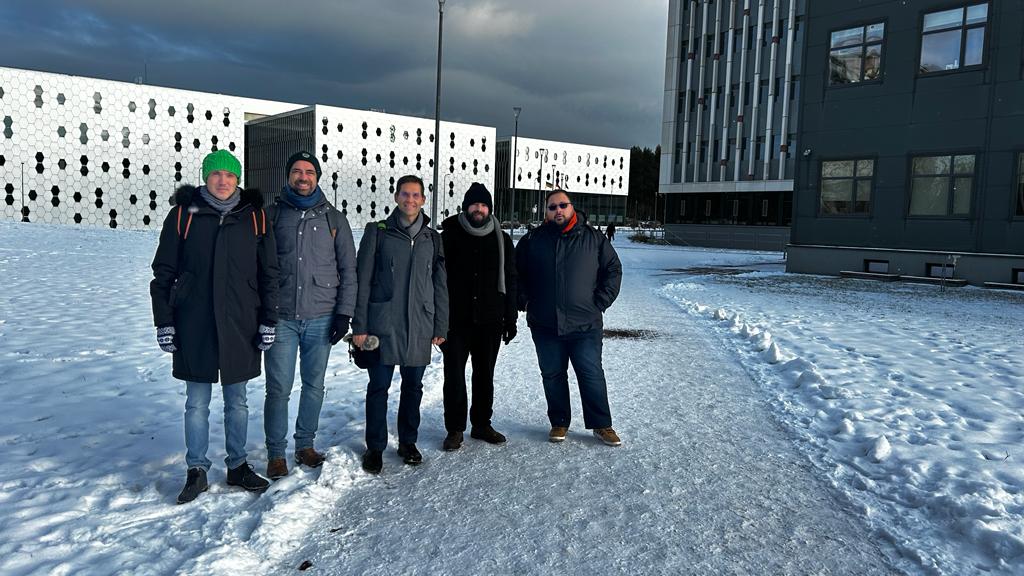
On November 25-30, astrophysicists Juan Carlos Suárez Yanes (group leader), Antonio García Hernández, Sebastià Barceló Forteza and Giovanni Mirouh from the Group of Stellar Evolution and Nucleosynthesis at the University of Granada visited Lithuania. The University of Granada (Universidad de Granada) is one of the ten ARQUS European University Alliance members, along with Vilnius University.
The researchers went to the Molėtai Astronomical Observatory (MAO) and the Lithuanian Museum of Ethnocosmology. After returning to Vilnius, they worked on an asteroseismology project at the VU Institute of Theoretical Physics and Astronomy (TFAI), were welcomed by the ambassador of the Kingdom of Spain in Lithuania, María Nieves Blanco Díaz, and visited the historical VU astronomy observatory in the Central building of Vilnius University.
The guests also conducted seminars: Sebastià Barceló Forteza‘s presentation titled ‘The Quest to Analyse Delta Scuti Stars: From Light Curves to Characterised Stars’ and Giovanni Mirouh‘s ‘Asteroseismology of Rapidly-Rotating Stars: Recent Progress on a Challenging Topic’.
The first presentation began with the words of the group leader, Juan Carlos Suárez Yanes, who introduced the team. Meanwhile, the last one was concluded by Antonio García Hernández, who also with the attendees discussed the ongoing and future common projects.
This visit was the continuation of a previous one that Dr Erika Pakštienė and Dr Carlos Viscasillas Vázquez, researchers at the VU TFAI Astrospectroscopy and Exoplanets Group, had at the University of Granada last September. At that time, the primary aim was to model a specific Delta Scuti-type star in a binary system discovered at the Molėtai Astronomical Observatory.
‘Interacting and collaborating with the asteroseismologists from Granada provides us with a chance to enhance our expertise in this valuable and fascinating field of knowledge’, claimed Dr Carlos Viscasillas Vázquez.
‘I am extremely happy that we got in contact with astronomers from Granada University, as we found a lot of mutual interests, which should lead to a scientific production quite soon’, shared Dr Erika Pakštienė.
